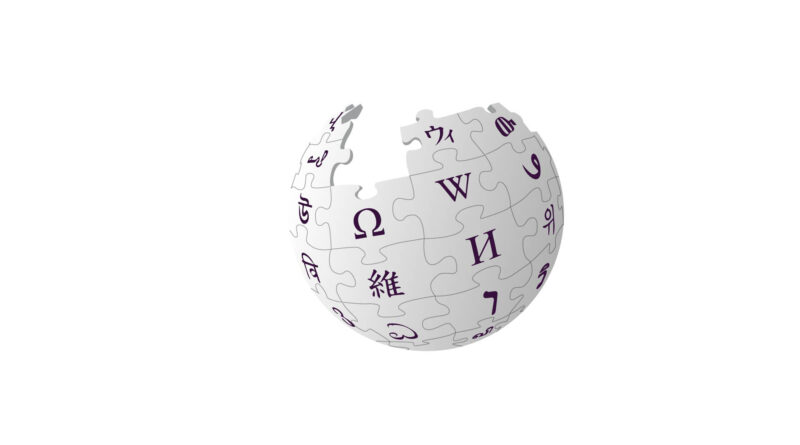Gender and Country Biases in Wikipedia Citations to Scholarly Publications
Gender and Country Biases in Wikipedia Citations to Scholarly Publications
Xiang Zheng
University of Wisconsin-Madison
Chaoqun Ni
University of Wisconsin-Madison
For most people worldwide, Wikipedia has become a primary online source of new knowledge. Wikipedia seems to be accepted as an authoritative knowledge base to provide accurate facts in understandable language, partially because the Wikipedia entry usually contains lots of citations to external resources, including scholarly publications. In a sense, Wikipedia distills research findings and amplifies their impact beyond academia to the public (Teplitskiy et al., 2017). For scholarly publications, being cited by Wikipedia also means acknowledgment and credit for the authors’ work. A question is then raised: Does Wikipedia cite scholarly publications based on relevance without any biases?
Our study shows that Wikipedia citations to scholarly publications are biased regarding the author’s gender and country of affiliation. We examined nearly 200K scholarly publications cited by English Wikipedia and imputed the authors’ genders and affiliation countries. For each publication, we matched its “twin” publications indexed by Web of Science, which is published during the same period in the same venue, within the same topical area, by an author team of similar size, and of the same open-access status. The only difference is that English Wikipedia had not cited the twin publications. Comparing the two groups of publications helps us evaluate if Wikipedia prefers to cite specific authors’ works more than the natural distribution.
—Does Wikipedia cite scholarly publications based on relevance without any biases?—
Our results highlight that Wikipedia’s preference for citing men’s works is prominent. Publications with women in key authorship positions are significantly less likely to be cited by Wikipedia than expected and those publications with men. This pattern is consistent across most fields. Similarly, Anglosphere (Australia, Canada, New Zealand, UK, and US) authors’ publications are more cited by English Wikipedia, while non-Anglosphere authors’ publications are less cited. These biases can intersect: Although women’s disadvantage is significant regardless of their countries, women from non-Anglosphere countries are disadvantaged to a larger extent, especially in math-intensive STEM fields. Given Wikipedia’s strong global impact on the public and the professionals, the gender-country intersectional biases in Wikipedia citations may further marginalize women authors in non-Anglosphere countries in the science ecosystem.

We think the biases in Wikipedia citations might be associated with two reasons. One possible reason is homophily, or a tendency for people to associate with others who are similar to them. This could lead to a preference for publications by authors who are demographically similar to the majority of English Wikipedia editors, who are often men from the Anglosphere (Hill & Shaw, 2013; Wagner et al., 2016). Another possible reason is that women and non-Anglosphere authors may have less symbolic capital, such as reputation and scholarly impact, than other authors (Castro Torres & Alburez-Gutierrez, 2022; Larivière et al., 2013). Wikipedia editors may pick publications consciously or unconsciously by those authors who possess more symbolic capital, aligning with the Matthew Effect (“the rich get richer”) in science. These hypotheses need further research to confirm.
In conclusion, our study adds new evidence to the imbalance in Wikipedia’s citation practices and the inequalities in the science and scientific workforce. We strongly believe that it should be vital to science equity to give scholars of different social demographic groups across countries the equal opportunity to spread their knowledge and increase visibility. Strategies are needed from Wikipedia and the scientific communities to ensure knowledge dissemination fairness and advance gender equality and decolonization in science.
The original article for this translation is:
Zheng, X., Chen, J., Yan, E., & Ni, C. (2023). Gender and country biases in Wikipedia citations to scholarly publications. Journal of the Association for Information Science and Technology, 74(2), 219–233. https://doi.org/10.1002/asi.24723
References
Castro Torres, A. F., & Alburez-Gutierrez, D. (2022). North and South: Naming practices and the hidden dimension of global disparities in knowledge production. Proceedings of the National Academy of Sciences, 119(10), e2119373119. https://doi.org/10.1073/pnas.2119373119
Hill, B. M., & Shaw, A. (2013). The Wikipedia Gender Gap Revisited: Characterizing Survey Response Bias with Propensity Score Estimation. PLoS ONE, 8(6). https://doi.org/10.1371/journal.pone.0065782
Larivière, V., Ni, C., Gingras, Y., Cronin, B., & Sugimoto, C. R. (2013). Bibliometrics: Global gender disparities in science. Nature, 504(7479), 211–213. https://doi.org/10.1038/504211a
Teplitskiy, M., Lu, G., & Duede, E. (2017). Amplifying the impact of open access: Wikipedia and the diffusion of science. Journal of the Association for Information Science and Technology, 68(9), 2116–2127. https://doi.org/10.1002/asi.23687
Wagner, C., Graells-Garrido, E., Garcia, D., & Menczer, F. (2016). Women through the glass ceiling: Gender asymmetries in Wikipedia. EPJ Data Science, 5(1). https://doi.org/10.1140/epjds/s13688-016-0066-4
Cite this article in APA as: Ni, C. & Zheng, X. (2023, February 1). Gender and country biases in Wikipedia citations to scholarly publications. Information Matters, Vol. 3, Issue 2. https://informationmatters.org/2023/01/gender-and-country-biases-in-wikipedia-citations-to-scholarly-publications/
Author
-
Xiang Zheng is a Ph.D. student at the Information School, University of Wisconsin-Madison. He is also a member of the Metascience Research Lab at UW-Madison. He is interested in data-driven studies related to science of science and scientific workforce.
View all posts





